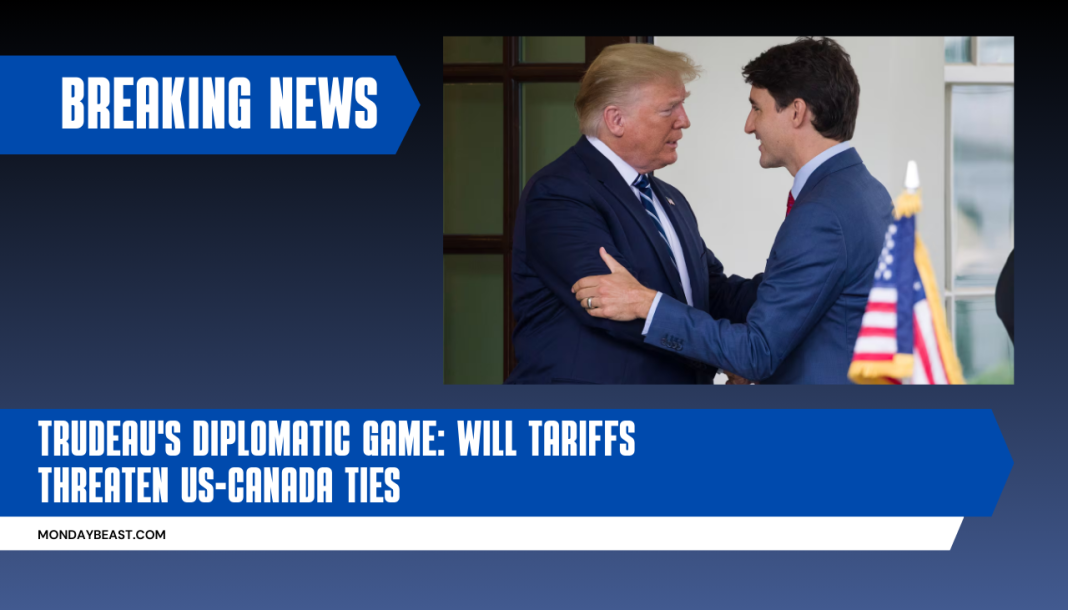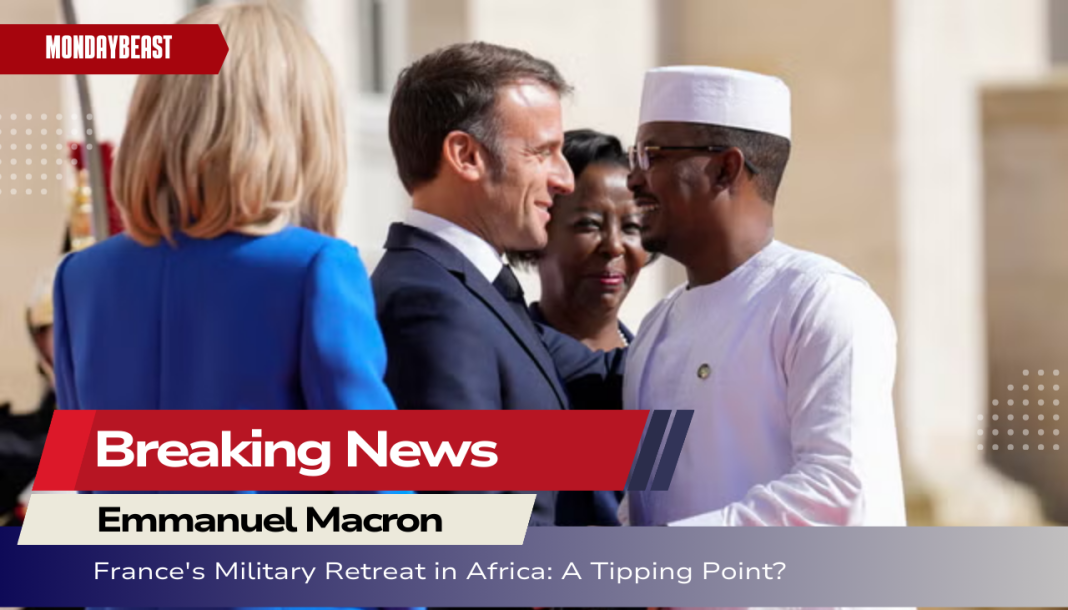Canadian Prime Minister Justin Trudeau is in Florida, meeting President Trump at Mar-a-Lago. It’s a high-stakes dinner amid threats of steep tariffs. With each passing moment, the political tension escalates.
Just days prior, Trump vowed to impose a 25% tariff on exports from Canada and Mexico. These tariffs target a range of goods, including beloved Prince Edward Island potatoes. This looming threat adds urgency to Trudeau’s mission.
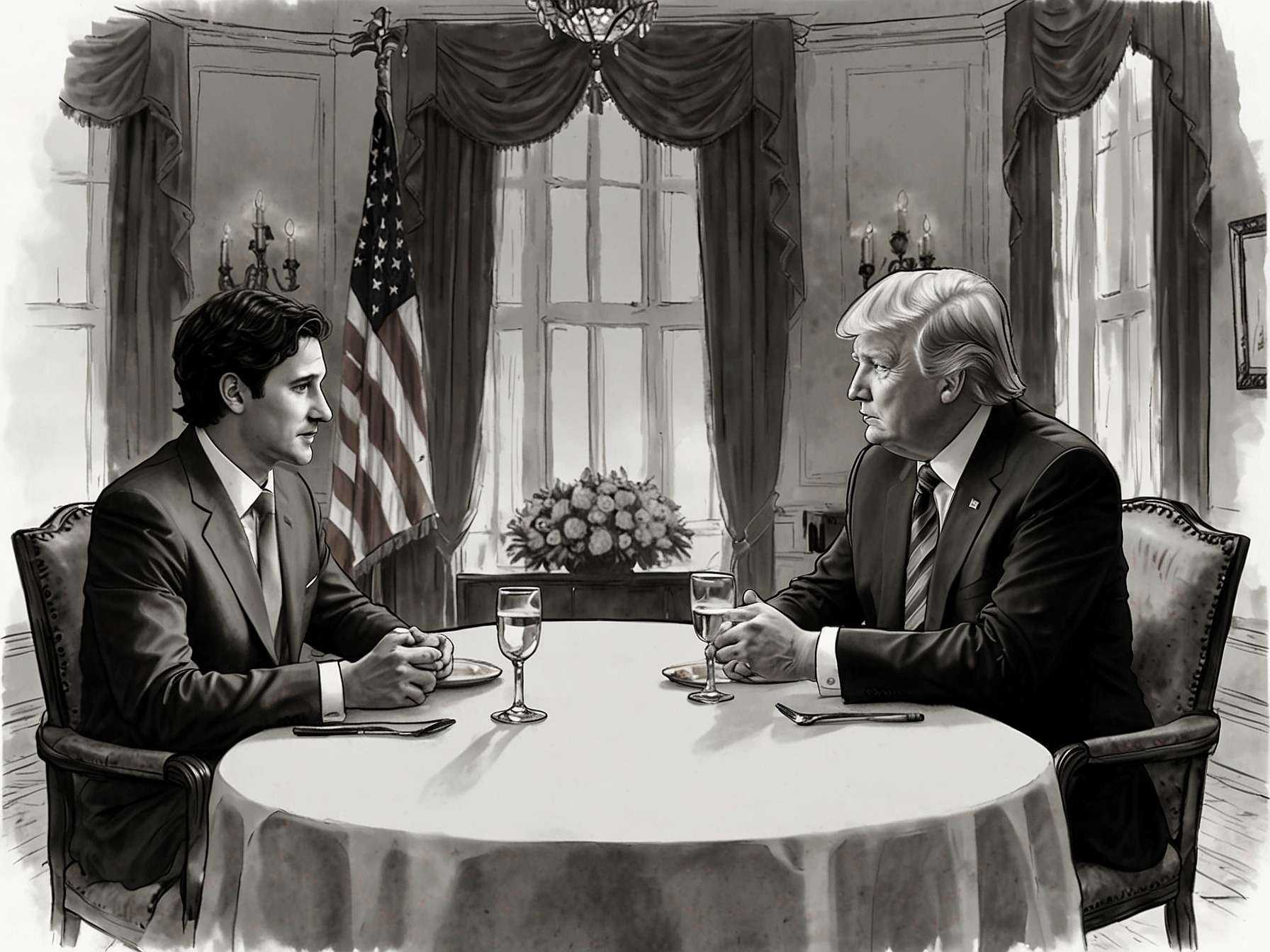
Trudeau is the first G7 leader to meet Trump since his election. His visit sends a clear message—a commitment to open dialogue is essential. Amid rising concerns over trade, immigration, and drug trafficking, both leaders face pressure from within their nations.
Trudeau has expressed the need for constructive conversations. He understands the tariffs could inflate prices for everyday Canadians. Farmers, businesses, and consumers alike worry about potential price hikes. Isn’t it ironic that tariffs meant to protect jobs might put more jobs at risk?
Addressing these issues head-on is crucial. Trudeau reiterated that he’d rather talk things out than let tensions escalate. He believes in diplomacy over confrontation, especially now.
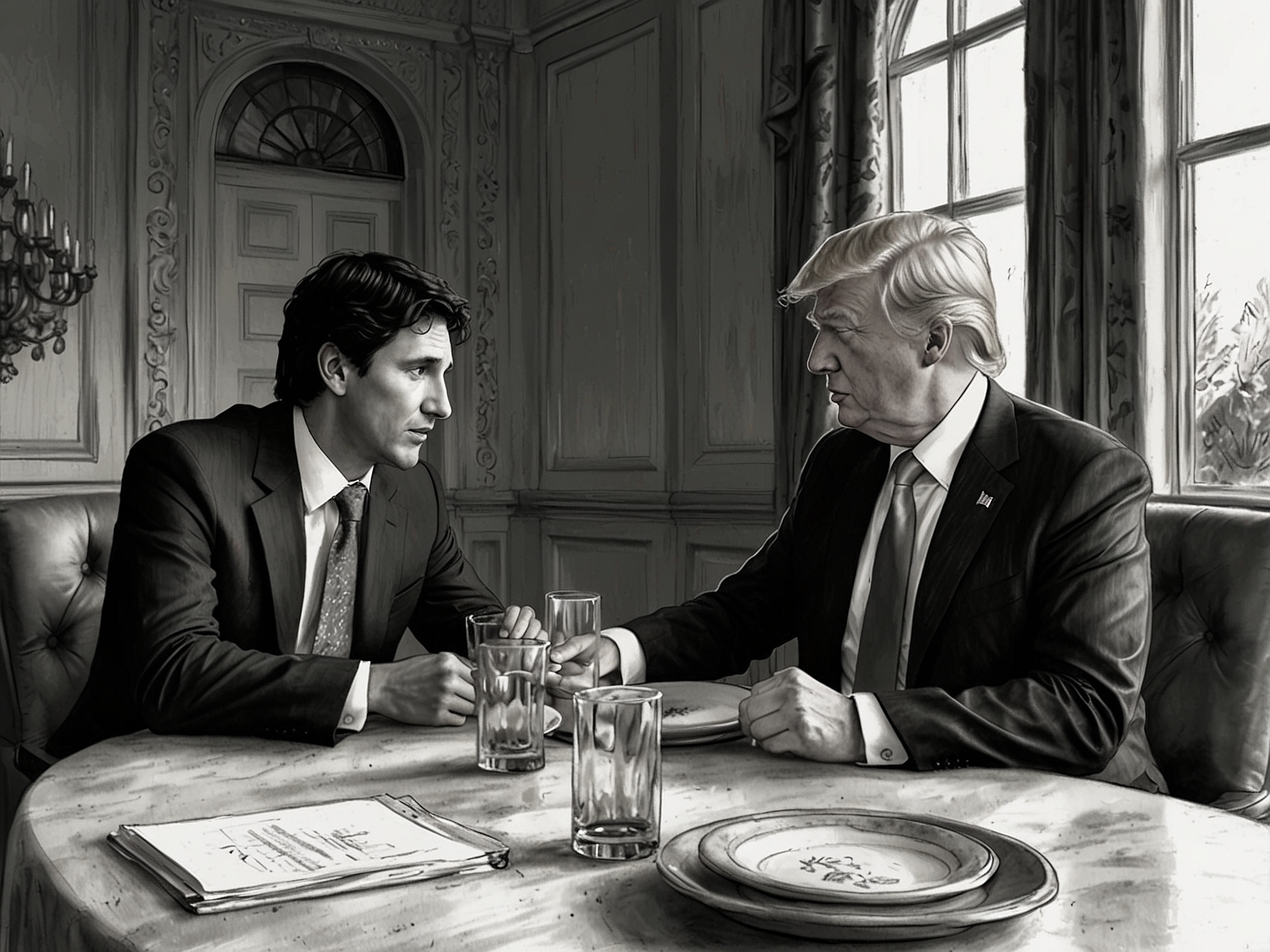
Last week, Trump mentioned plans to tackle illegal immigration and drug issues. It’s clear these matters weigh heavily on his administration. But what about the ripple effect on Canada? Tariffs could lead to retaliatory measures, triggering a trade war.
Canadian officials have shown skepticism. They emphasize the importance of maintaining balance in trade relations. Deputy Prime Minister Chrystia Freeland stated, “Canada buys more from the U.S. than from major economies combined.”
Let’s look at real numbers for perspective. Canada supplies about 60% of U.S. crude oil imports and 85% of its electricity. These figures highlight Canada’s essential role in U.S. energy security.
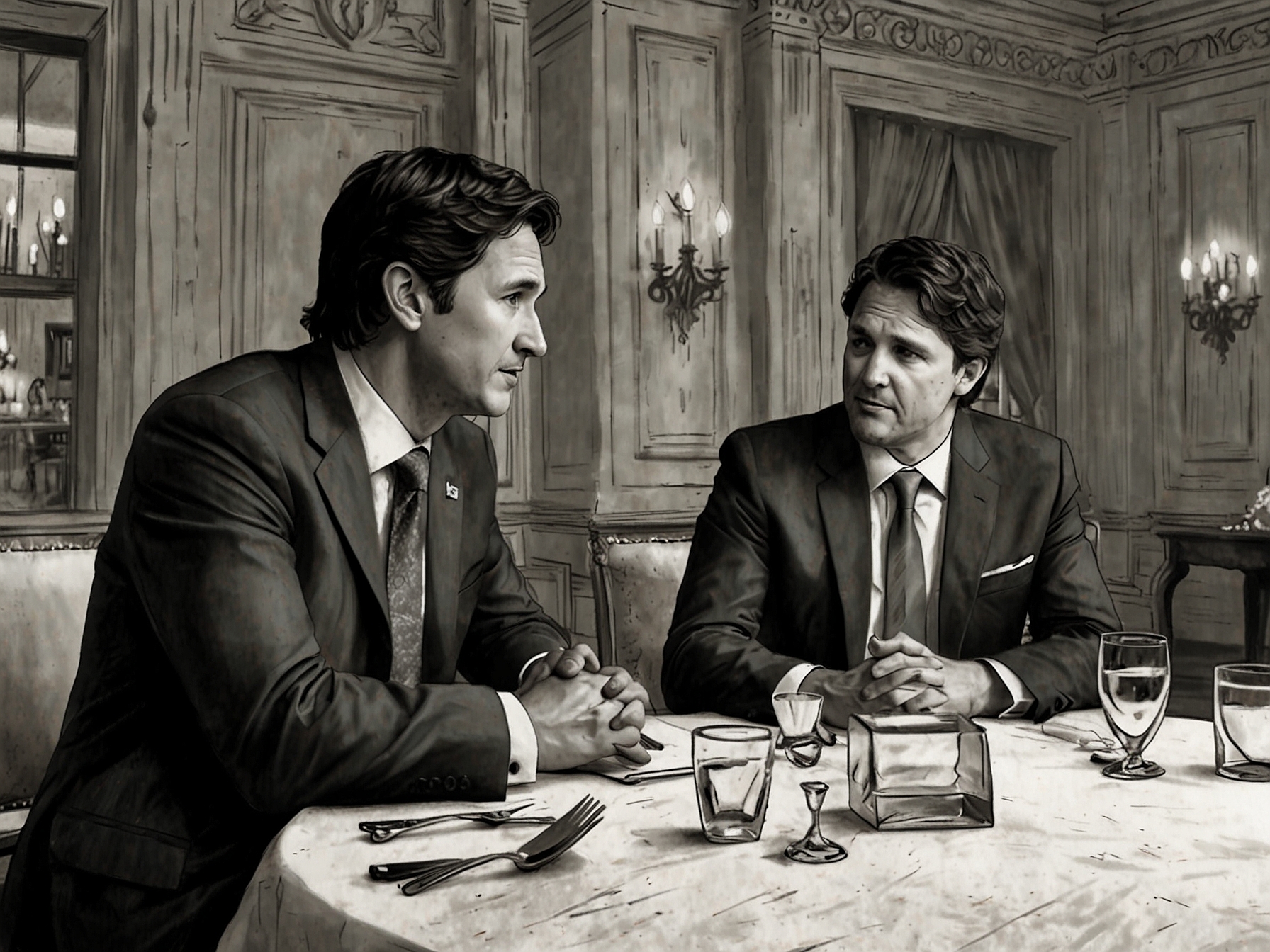
But what happens if tariffs are imposed? Canada could retaliate. A senior official hinted that levies on U.S. goods might follow. Such measures could escalate tensions between two neighboring countries.
Historically, we’ve seen such tit-for-tat scenarios. When Trump enacted tariffs during his first term, Canada responded sharply. It announced billions in duties on U.S. products.
Trudeau’s diplomatic visit underscores the gravity of the situation. It raises questions about the future of U.S.-Canada relations. Can both leaders navigate this minefield without damaging trade ties? The world watches closely.
As Trump champions his economic agenda, the stakes are high. For Trudeau, the stakes include jobs, industry, and a deep-rooted friendship. Ultimately, both leaders must decide: is it worth risking long-established ties over tariffs?

